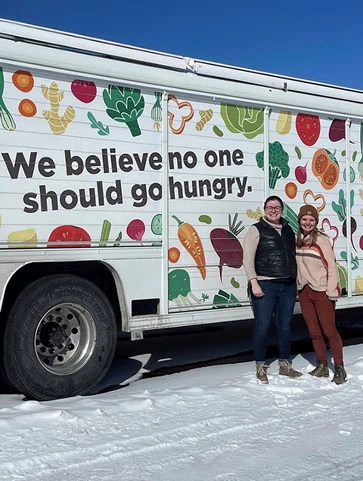F.A.Q.
Questions and Answers
Q: How do I qualify for the Pantry’s assistance?
A: A short app and a quick chat to help assess your situation so the Pantry can best help at your point of need.
Q: My friend or neighbor needs assistance but is unable to come to the Food Pantry. Can we pick up food on their behalf?
A: Of course. Please call or stop in and we will ask for you to fill out a Proxy form, then you may take food to them.
Q: Do you provide food for individuals with restricted diets?
A: Yes, we can help if you have a food allergy or otherwise restricted diet. Please communicate your needs to the Pantry Manager.
Q: Do you deliver food?
A: Yes, we can deliver food to you if you are experiencing a long- or short-term barrier to Shopping the Pantry. Call (970) 641-4156 and arrange the delivery in advance.
Q: What if my friend or neighbor needs assistance but doesn’t understand English?
A: We can help. Our application form is offered in Spanish. On Wednesdays from 4p-7p, Spanish and Cora-speaking volunteers help those facing hunger at the Pantry.
Q: What is TEFAP?
A: The Emergency Food Assistance Program (TEFAP) is a federal program that helps supplement the diets of low-income Americans by providing them with emergency food assistance at no cost. USDA provides 100% American-grown USDA Foods and administrative funds to states to operate TEFAP. The Emergency Food Assistance Program | Food and Nutrition Service (usda.gov)
Q: Are donors protected from liability if someone were to get sick from eating donated food?
A: Yes! The Bill, Emerson Good Samaritan Act, established in 1996, protects businesses that donate food in good faith from being held liable should someone become sick from the food. The only exception to the law is in the case of gross negligence or intentional misconduct. In 2023 new legislation, called the Food Donation Improvement Act, enhanced the provisions of the Bill Emerson Good Samaritan Act of 1996. This new law expands liability coverage to donor businesses that distribute food directly to individuals in need (in addition to donating food to non-profit organizations who distribute to people in need). It also protects non-profits who can now charge a reduced price for donated food to cover costs of re-packing, labor, and transportation and donors who directly distribute food to individuals. The USDA now has authority to manage the new regulations.
Q: How do I know what kinds of food I can donate and how to package food?
A: Please refer to GCFP’s Food Safety Guidelines For Donors, visit https://www.usda.gov/topics/health-and-safety, or call and speak with a staff member if you have any questions!
Q: Does the Pantry have to purchase food?
A: Yes. The Pantry strives to provide variety, culturally relevant food, and nutritious options to guests. Each year the Pantry raises additional funds to be used for food purchases!

